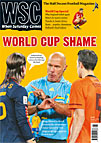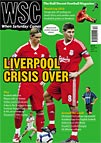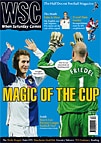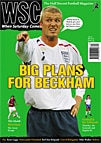 Relive four weeks of statements of the obvious from the pundits, daily complaints about the wobbly ball and over-emphatic pronunciations of Brazilian names
Relive four weeks of statements of the obvious from the pundits, daily complaints about the wobbly ball and over-emphatic pronunciations of Brazilian names
June 11
South Africa 1 Mexico 1
“It’s in Africa where humanity began and it is to Africa humanity now returns,” says Peter Drury who you feel would be available for film trailer voiceover work when it’s quieter next summer. Mexico dominate and have a goal disallowed when the flapping Itumeleng Khune inadvertently plays Carlos Vela offside. ITV establish that it was the right decision: “Where’s that linesman from, that football hotbed Uzbekistan?” asks Gareth Southgate who had previously seemed like a nice man. "What a moment in the history of sport… A goal for all Africa,” says Drury after Siphiwe Tshabalala crashes in the opener. We cut to Tshbalala’s home township – “they’ve only just got electricity” – where the game is being watched on a big screen which Jim Beglin thinks is a sheet. Cuauhtémoc Blanco looks about as athletic as a crab but nonetheless has a role in Mexico’s goal, his badly mishit pass being crossed for Rafael Márquez to score thanks to a woeful lack of marking. The hosts nearly get an undeserved winner a minute from time when Katlego Mphela hits the post. Óscar Pérez is described as “a personality goalkeeper” as if that is a tactical term like an attacking midfielder. Drury says “Bafana Bafana” so often it’s like he’s doing a Red Nose event where he earns a pound for an irrigation scheme in the Sudan every time he manages to fit it in.


